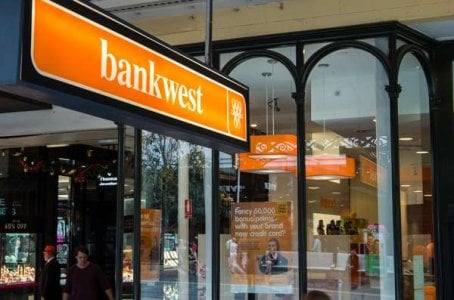Local bank closure signals shift in banking services and community connections
- Replies 36
The closure of a significant bank branch in one Aussie state marks the end of an era for the local community.
This decision has sparked conversations about the evolving landscape of banking services and the impact on residents who have relied on the branch for years.
As institutions adapt to changing consumer needs and technological advancements, the farewell to this long-standing branch serves as a reminder of the deep connections formed over time and the changes that lie ahead.
The Mandurah Forum branch, Bankwest’s final metropolitan branch, will be closing its doors today, September 27, marking the end of a significant chapter in Western Australia's banking history.
This will end its street presence of nearly 130 years that dates back to Western Australia’s colonial era and will also signal a shift in the banking industry that could have profound implications for customers, particularly the elderly, who have relied on traditional banking methods.

Mandurah Forum is the final branch of the 28 locations in greater Perth slated for closure following the Commonwealth Bank of Australia's abrupt announcement in March to accelerate Bankwest's shift to a digital-only model.
The remaining 15 branches, all situated in regional WA, will be transitioned to Commonwealth Bank by mid-December, although their future beyond 2026 is uncertain.
The Commonwealth Bank of Australia (CBA), which acquired Bankwest for $2.1 billion from its struggling British parent during the Global Financial Crisis in 2008, stated that the widespread closures reflect a significant decline in branch usage as customers turn to digital banking.
Nevertheless, some customers, particularly the elderly, still depend on physical branches for their banking needs and have had to seek alternatives if they prefer not to switch to online services or transition to CBA.
Bankwest’s impact assessment for the Mandurah closure indicated that over-the-counter transactions at the branch had dropped by 30.6 per cent, averaging just 64 transactions daily over the past year until February.
However, during a visit to Mandurah Forum on Wednesday, September 25, a queue of about 10 customers was reportedly waiting for the branch to open, with a steady flow of visitors seeking assistance from staff in the following half hour.
Bankwest has maintained a branch network since its establishment in 1895 as the Agricultural Bank, later becoming the Rural & Industries Bank.
It was initially supported by then-premier John Forrest as ‘a novel experiment in State enterprise’ aimed at financing the development of the Wheatbelt.
After being listed on the Australian stock exchange, Bankwest pursued significant national expansion under its previous parent, the British bank HBOS, but this was thwarted by the Global Financial Crisis and subsequent sale to Commonwealth Bank.
When the purchase was made, CBA highlighted its ‘intention to maintain and grow the Bankwest brand’ and assured that ‘BankWest branches and business centres in WA will not be closing as a consequence of this acquisition’.
However, in recent years, CBA has scaled back its subsidiary by shutting down its east coast offices, reducing the WA branch network, and exiting the business lending market.
The rise in digital banking convenience has transformed the industry landscape, but it’s clear that major banks have made in-person transactions less accessible.
Currently, approximately 97 per cent of Bankwest's transactions occur online, with only 2,000 of its 550,000 customers relying solely on branch services.
The final closures of the 17 regional branches not transitioning to CBA are taking place this week, with Geraldton closing on Wednesday (September 25) and Kalgoorlie on Thursday (September 26).
Bankwest reported that the majority of the 350 employees impacted by the mass closures have agreed to redeployment opportunities within the bank or CBA.
However, those transitioning to CBA will have their roles confirmed only after the Fair Work Commission assesses that they won’t be worse off under the new contracts.
The Finance Sector Union has filed a dispute with the FWC on behalf of its Bankwest members, alleging that CBA is ‘trying to force an inferior enterprise agreement on its loyal Bankwest workers at a time when inflation and cost of living is eroding workers’ pay’.
As Bankwest's Mandurah Forum branch prepares to close its doors, marking the end of a significant chapter in Western Australia's banking history, many residents, particularly seniors, are left grappling with the implications of this shift.
The closure reflects a broader trend in the banking sector, where the move towards digital services is leaving some customers feeling abandoned.
This has raised concerns among communities about access to essential banking services, especially as the Big Four banks continue to make controversial decisions that impact their clientele.
As the landscape of banking evolves, it's crucial to consider how these changes affect everyday Australians, particularly the most vulnerable.

We invite our readers to share their thoughts and experiences with the changing landscape of banking. How have these closures affected you? How are you adapting to the new digital banking era? Your insights could be invaluable to fellow members navigating similar challenges.
This decision has sparked conversations about the evolving landscape of banking services and the impact on residents who have relied on the branch for years.
As institutions adapt to changing consumer needs and technological advancements, the farewell to this long-standing branch serves as a reminder of the deep connections formed over time and the changes that lie ahead.
The Mandurah Forum branch, Bankwest’s final metropolitan branch, will be closing its doors today, September 27, marking the end of a significant chapter in Western Australia's banking history.
This will end its street presence of nearly 130 years that dates back to Western Australia’s colonial era and will also signal a shift in the banking industry that could have profound implications for customers, particularly the elderly, who have relied on traditional banking methods.

Bankwest is closing its final metropolitan branch in Mandurah Forum, marking the end of its street presence that dates back to WA's colonial era. Credit: Shutterstock
Mandurah Forum is the final branch of the 28 locations in greater Perth slated for closure following the Commonwealth Bank of Australia's abrupt announcement in March to accelerate Bankwest's shift to a digital-only model.
The remaining 15 branches, all situated in regional WA, will be transitioned to Commonwealth Bank by mid-December, although their future beyond 2026 is uncertain.
The Commonwealth Bank of Australia (CBA), which acquired Bankwest for $2.1 billion from its struggling British parent during the Global Financial Crisis in 2008, stated that the widespread closures reflect a significant decline in branch usage as customers turn to digital banking.
Nevertheless, some customers, particularly the elderly, still depend on physical branches for their banking needs and have had to seek alternatives if they prefer not to switch to online services or transition to CBA.
Bankwest’s impact assessment for the Mandurah closure indicated that over-the-counter transactions at the branch had dropped by 30.6 per cent, averaging just 64 transactions daily over the past year until February.
However, during a visit to Mandurah Forum on Wednesday, September 25, a queue of about 10 customers was reportedly waiting for the branch to open, with a steady flow of visitors seeking assistance from staff in the following half hour.
Bankwest has maintained a branch network since its establishment in 1895 as the Agricultural Bank, later becoming the Rural & Industries Bank.
It was initially supported by then-premier John Forrest as ‘a novel experiment in State enterprise’ aimed at financing the development of the Wheatbelt.
After being listed on the Australian stock exchange, Bankwest pursued significant national expansion under its previous parent, the British bank HBOS, but this was thwarted by the Global Financial Crisis and subsequent sale to Commonwealth Bank.
When the purchase was made, CBA highlighted its ‘intention to maintain and grow the Bankwest brand’ and assured that ‘BankWest branches and business centres in WA will not be closing as a consequence of this acquisition’.
However, in recent years, CBA has scaled back its subsidiary by shutting down its east coast offices, reducing the WA branch network, and exiting the business lending market.
The rise in digital banking convenience has transformed the industry landscape, but it’s clear that major banks have made in-person transactions less accessible.
Currently, approximately 97 per cent of Bankwest's transactions occur online, with only 2,000 of its 550,000 customers relying solely on branch services.
The final closures of the 17 regional branches not transitioning to CBA are taking place this week, with Geraldton closing on Wednesday (September 25) and Kalgoorlie on Thursday (September 26).
Bankwest reported that the majority of the 350 employees impacted by the mass closures have agreed to redeployment opportunities within the bank or CBA.
However, those transitioning to CBA will have their roles confirmed only after the Fair Work Commission assesses that they won’t be worse off under the new contracts.
The Finance Sector Union has filed a dispute with the FWC on behalf of its Bankwest members, alleging that CBA is ‘trying to force an inferior enterprise agreement on its loyal Bankwest workers at a time when inflation and cost of living is eroding workers’ pay’.
As Bankwest's Mandurah Forum branch prepares to close its doors, marking the end of a significant chapter in Western Australia's banking history, many residents, particularly seniors, are left grappling with the implications of this shift.
The closure reflects a broader trend in the banking sector, where the move towards digital services is leaving some customers feeling abandoned.
This has raised concerns among communities about access to essential banking services, especially as the Big Four banks continue to make controversial decisions that impact their clientele.
As the landscape of banking evolves, it's crucial to consider how these changes affect everyday Australians, particularly the most vulnerable.
Key Takeaways
- Bankwest is closing its last metropolitan branch in Mandurah Forum, ending its street presence dating back to WA's colonial times.
- The closure is part of Commonwealth Bank of Australia's strategy to transition Bankwest to become a digital-only bank.
- Customers who rely on in-person banking services, particularly the elderly, have been forced to find alternative solutions with over-the-counter transactions at the branch declining.
- The Finance Sector Union has raised concerns about the treatment of Bankwest workers being transferred to CBA, amid the mass closures and digital transition.
Last edited:







